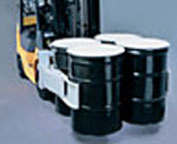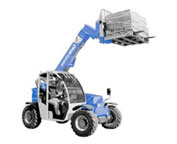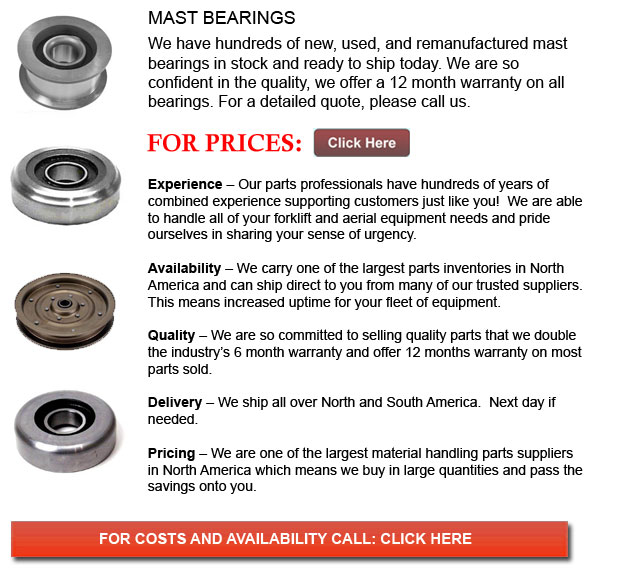
Mast Bearings - A bearing allows for better motion between at least 2 components, typically in a linear or rotational procession. They could be defined in correlation to the flow of applied weight the could take and according to the nature of their application
Plain bearings are extremely commonly utilized. They use surfaces in rubbing contact, often along with a lubricant like graphite or oil. Plain bearings may or may not be considered a discrete tool. A plain bearing could consist of a planar surface which bears another, and in this situation will be defined as not a discrete tool. It may consist of nothing more than the bearing surface of a hole together with a shaft passing through it. A semi-discrete instance will be a layer of bearing metal fused to the substrate, whereas in the form of a separable sleeve, it would be a discrete gadget. Maintaining the right lubrication allows plain bearings to be able to provide acceptable friction and accuracy at minimal cost.
There are various bearings which could help enhance and develop effectiveness, reliability and accuracy. In numerous uses, a more fitting and specific bearing could better weight size, operation speed and service intervals, therefore lowering the overall costs of operating and buying equipment.
Many kinds of bearings along with different lubrication, shape, material and application exist in the market. Rolling-element bearings, for example, use drums or spheres rolling between the components to reduce friction. Reduced friction provides tighter tolerances and higher precision as opposed to plain bearings, and less wear extends machine accuracy.
Plain bearings can be constructed of plastic or metal, depending on the load or how corrosive or dirty the environment is. The lubricants that are utilized could have considerable effects on the lifespan and friction on the bearing. For example, a bearing may be run without whichever lubricant if continuous lubrication is not an alternative because the lubricants could be a magnet for dirt which damages the bearings or equipment. Or a lubricant could better bearing friction but in the food processing business, it could require being lubricated by an inferior, yet food-safe lube so as to prevent food contamination and ensure health safety.
Nearly all bearings in high-cycle uses need some lubrication and cleaning. They can require periodic adjustment to reduce the effects of wear. Some bearings could require occasional upkeep in order to avoid premature failure, even though magnetic or fluid bearings may require not much maintenance.
A well lubricated and clean bearing will help prolong the life of a bearing, however, various types of operations could make it much hard to maintain constant upkeep. Conveyor rock crusher bearings for instance, are regularly exposed to abrasive particles. Frequent cleaning is of little use for the reason that the cleaning operation is costly and the bearing becomes dirty once again as soon as the conveyor continues operation.
![]() Click to Download the pdf
Click to Download the pdf
Forklift Parts








Lift Parts Express
TOLL FREE: 1-888-695-7994
Pascagoula, Mississippi
forkliftpartspascagoula.com
Email Us
About Us



